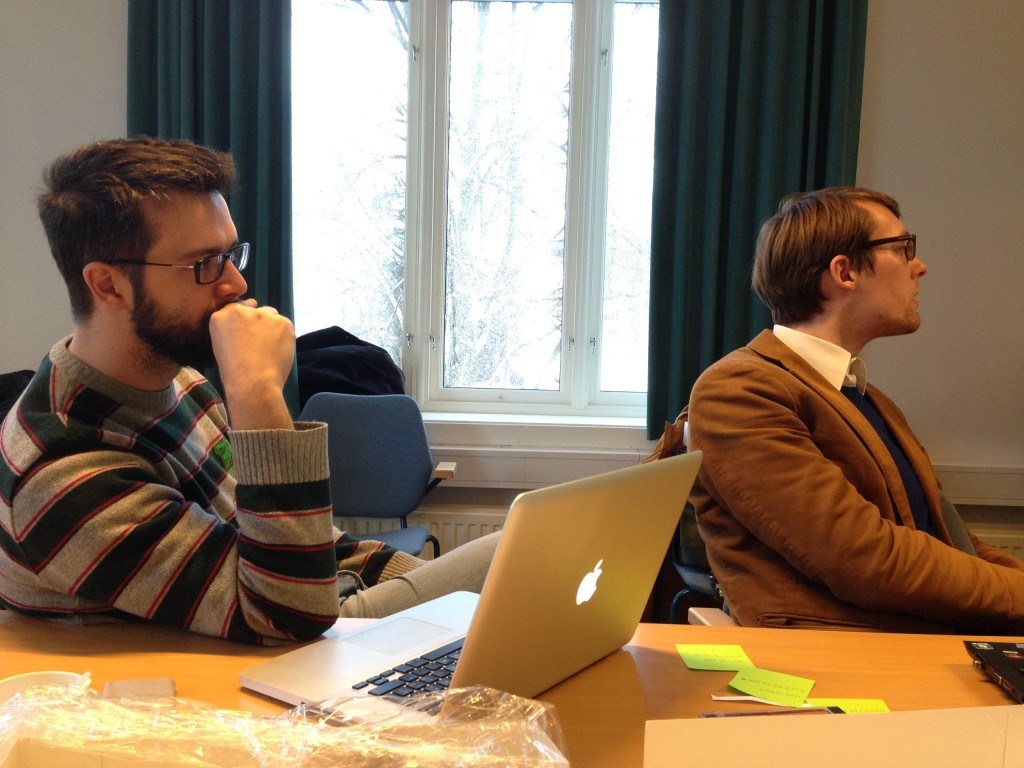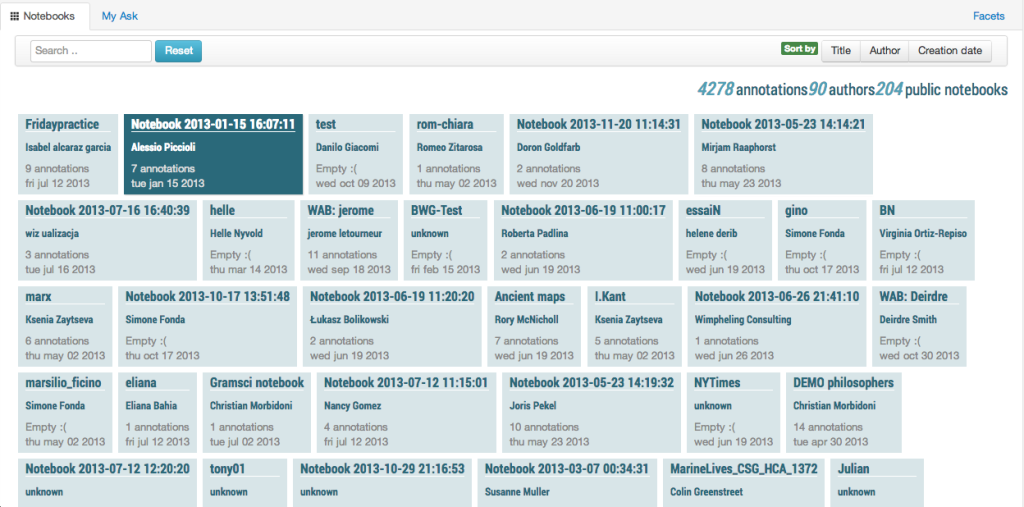
One of the primary goals of the DM2E project is to build a set of tools that can be used to support and further humanities scholarship. Early on in the project a group of specialists on the influential twentieth century philosopher, Ludwig Wittgenstein, were identified as a key scientific community for the tools under development. The scholars based at the Bergen Wittgenstein Archives at the University of Bergen, also a content provider to DM2E, have been consulted throughout the development of the project’s flagship annotation tool, Pundit.
At the end of December members of this very community of Wittgenstein experts and digital humanists gathered in Bergen to give feedback on their experiences using Pundit to annotate Wittgenstein’s digitised manuscripts that have been made available through [Wittgenstein Source](http://www.wittgensteinsource.org/). Many of those present had been involved in the Agora and [Discovery](http://www.discovery-project.eu/home.html) projects, which had undertaken much of the technical groundwork which DM2E has built on.
As preparation for the workshop all participants had been asked to do some exercises and complete a survey with the DM2E annotation tool, Pundit. After a welcome by Alois Pichler from the Wittgenstein Archives, Kristin Dill of DM2E partner the Austrian National Library opened up proceedings with a brief introduction to the project and a presentation of the survey results to get a sense of some early responses to Pundit from the group present.
The DM2E partners behind Pundit, Net7, demonstrated a new and important aspect of the annotation tool, called AskThePundit. Ask enables users who have created annotations in Pundit to share their own “notebooks” and discover those of others. The platform offers an incredibly powerful way to connect users and enable novel presentations of sets of annotations. Pundit is increasingly being taken up and integrated in other tools for Wittgenstein research, like for example the splendid search tool [WiTTFind](http://wittfind.cis.uni-muenchen.de/) developed at the [LMU-CIS](http://www.cis.uni-muenchen.de/index.html) in Munich.
If you’re interested you can check out the current Beta version of Ask [here](http://ask.thepund.it/). The demonstration of the platform was very well received by the participants.

On top of the demonstration of the AskThePundit platform, the Net7 team demonstrated impressive integrations that had been developed with Pundit allowing users to visualise networks of influence and create timelines using from Pundit annotation data.
The second-half of the day was dedicated to an open discussion in which the researchers could discuss in detail their experiences using Pundit and suggest possible improvements to the software. Key points and feature requests that emerged from the lively discussion that followed were as follows:
###Feature requests for Pundit and AskThePundit
* An option for licensing your annotations according to how you would like them to be used;
* More possibilities for visualising graphs created by annotations;
* Make it possible to “reply to” annotations;
* Allow users to search for annotations with a URL;
* Allow annotations to be grouped by the time created;
* Enable users to delete annotations.
###General comments
* More Linked Open Data and content is needed before scholars can really feel like they are acting as if in a library in the Linked Data cloud;
* Better documentation should be made available for using ontologies so that it’s clearer how to use them.
—
During the latter stages of the day some interesting questions were raised concerning the opportunities for community building around tools like Pundit that offer humanities researchers new ways of working with traditional texts. A key issue that was identified by participants was that many researchers were not accustomed to using digital environments for the creation of annotations, let alone the creation of annotations as Linked Data. It was therefore felt that the best means of engaging the scholarly community in the use of novel digital humanities tools was through working with students and young researchers who were digital natives and more flexible in their approach to working with texts.
The day was wrapped up by Kristin Dill of the Austrian National Library. As a follow up, participants were given an opportunity to rate the various features that had been demonstrated during the day in the form of a survey. Data from this survey will help the DM2E team evaluate how successfully the current version of Pundit responds to the scholars’ needs.

Comments are closed.